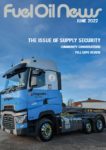The agreement is a significant boost for Humber Zero, a first-of-a-kind project that could provide a model to help decarbonise refineries and have a meaningful impact on the UK’s net zero target
The agreement announced today will see the deployment of the Cansolv* CO2 technology to capture carbon produced in the North Lincolnshire, England refinery’s fluid catalytic cracking (FCC) process. The Shell technology will capture at least 95% of the carbon dioxide in the FCC flue gas, compressing it before the gas is transported to be safely stored in geological structures under the seabed in the North Sea.
Phillips 66 Limited will also work alongside engineering services firm Worley in the Front-End Loading 2 (FEL 2) stage of the design process to build a facility in which the carbon dioxide-capture process will take place.
Worley’s role is to integrate Shell’s carbon-capture technology into the Humber Refinery and design the infrastructure required to export the carbon dioxide into the transport and storage network. The projected startup is expected in 2027.
Global potential
Humber Refinery general manager Darren Cunningham, the lead executive for Phillips 66 in the UK, described the project as “hugely significant” from a technology perspective.
“There are more than 300 FCCs in the world,” Cunningham said. “We would be developing technology that has the potential to decarbonise them.
“We are looking forward to working with the Shell team — which brings a huge amount of carbon- capture experience to the table — and, with Worley, delivering this important project to the region.”
A boost for Humber Zero
The agreement supports the Humber Zero project, a collaboration between the Humber Refinery and combined heat and power company VPI-Immingham, a subsidiary of commodity trader Vitol, with participation from other businesses, organisations and academic institutions.
The project, whose goal is to capture up to 8 million tonnes of carbon dioxide per annum by 2030, has been supported by UK Research and Innovation (UKRI), the largest public funder of research and innovation in the UK. UKRI, through the Industrial Decarbonisation Challenge, is investing £12.5m of Government funding in the project, matched by Phillips 66 Limited and VPI Immingham LLP.
Shell will also provide their Cansolv* CO2 technology at the VPI site.
Phillips 66 Limited project leader Adam Young said: “This decision adds momentum to the Humber Zero consortium. It will provide added synergies, including increased knowledge-sharing that will directly lower the cost for capture.”
Investing in future energy
Carbon capture is one of the pillars of Phillips 66’s Emerging Energy organisation, and reducing carbon dioxide emissions is part of the company’s vision for the refinery of the future.
Cunningham added: “Humber Refinery is tackling the dual challenge of providing the energy the world needs to power human progress while at the same time addressing climate change. We are providing a model for the energy transition.”
The refinery’s coastal location is ideally situated to help the UK Government’s goal of industrial decarbonisation, given the plans to take the captured CO2 via pipeline to be stored under the North Sea.
Andy Gosse, President, Shell Catalysts & Technologies, said: “We are very pleased to have another opportunity to provide our technology solution to help the Humber region transform to a lower-carbon energy future.
“Having two facilities operating in such close proximity should enable further synergies and opportunities to reduce the cost of CO2 capture.”
Bradley Andrews, President at Worley, said: “We’ve been working at the Humber Refinery for over two decades, and we look forward to collaborating with Phillips 66 Limited and Shell on this significant project to reduce carbon dioxide emissions at scale.
“This is aligned with Worley’s focus and investment in capability to help decarbonise existing industrial assets in the UK and our purpose in delivering a more sustainable world.”
The Humber region produces 40% of the nation’s industrial carbon dioxide emissions, so Humber Zero will play a crucial role in the Government hitting its 2050 net-zero carbon emission target.
* Cansolv is a Shell group trademark.
